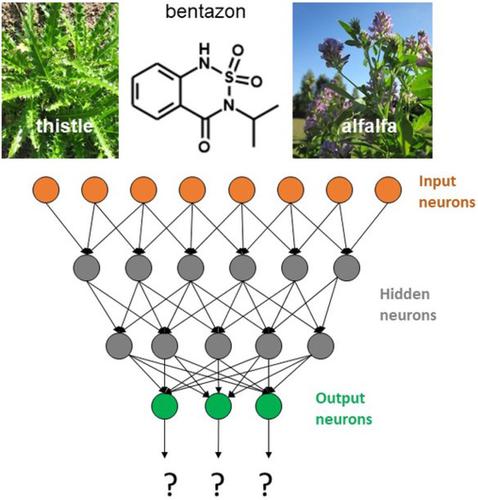当前位置:
X-MOL 学术
›
Pest Manag. Sci.
›
论文详情
Our official English website, www.x-mol.net, welcomes your
feedback! (Note: you will need to create a separate account there.)
Putting deep learning in perspective for pest management scientists.
Pest Management Science ( IF 3.8 ) Pub Date : 2020-03-15 , DOI: 10.1002/ps.5820 Robert D Clark 1
Pest Management Science ( IF 3.8 ) Pub Date : 2020-03-15 , DOI: 10.1002/ps.5820 Robert D Clark 1
Affiliation

|
‘Deep learning’ is causing rapid technological changes in many fields of science, and conjectures about its potential for transforming everyone's work and lives is a matter of great debate. Unfortunately, it is all too easy to apply it as a ‘black box’ tool with little consideration of its potential limitations, especially when the data it is being applied to is less than perfect. In this Perspective, I try to put deep learning into a broader mechanistic and historical context by showing how it relates to older forms of artificial intelligence; by providing a general explanation of how it operates; and by exploring some of the challenges involved in its implementation. Examples wherein it has been applied to pest management problems are provided to illustrate how the technology works and the challenges deep learning faces. At least in the near term, its biggest impact on agrochemical development seems likely to come in automating the tedious work involved in assessing agrochemical efficacy, but getting there will require major investments in building large, well‐curated data sets to work from and in providing the expertise required to assess the resulting model predictions in real‐world scenarios. Deep learning may also come to complement the machine learning methodologies already available for use in pesticide discovery and development, but it seems unlikely to supplant them. © 2020 The Authors. Pest Management Science published by John Wiley & Sons Ltd on behalf of Society of Chemical Industry.
中文翻译:

让害虫管理科学家正确看待深度学习。
“深度学习”正在许多科学领域引发快速的技术变革,关于它改变每个人工作和生活的潜力的猜测一直存在很大争议。不幸的是,很容易将其作为“黑匣子”工具应用,而很少考虑其潜在的局限性,特别是当它所应用的数据不太完美时。在这个视角中,我试图通过展示深度学习与旧形式的人工智能的关系,将深度学习置于更广泛的机制和历史背景中。提供其运作方式的一般解释;并探讨其实施过程中遇到的一些挑战。提供了将其应用于害虫管理问题的示例,以说明该技术的工作原理以及深度学习面临的挑战。至少在短期内,它对农用化学品发展的最大影响似乎可能在于使评估农用化学品功效所涉及的繁琐工作实现自动化,但要实现这一目标,需要大量投资来构建大型、精心策划的数据集,并提供这些数据集。在现实场景中评估模型预测结果所需的专业知识。深度学习也可能会补充已经可用于农药发现和开发的机器学习方法,但它似乎不太可能取代它们。© 2020 作者。《害虫管理科学》由 John Wiley & Sons Ltd 代表化学工业协会出版。
更新日期:2020-03-15
中文翻译:

让害虫管理科学家正确看待深度学习。
“深度学习”正在许多科学领域引发快速的技术变革,关于它改变每个人工作和生活的潜力的猜测一直存在很大争议。不幸的是,很容易将其作为“黑匣子”工具应用,而很少考虑其潜在的局限性,特别是当它所应用的数据不太完美时。在这个视角中,我试图通过展示深度学习与旧形式的人工智能的关系,将深度学习置于更广泛的机制和历史背景中。提供其运作方式的一般解释;并探讨其实施过程中遇到的一些挑战。提供了将其应用于害虫管理问题的示例,以说明该技术的工作原理以及深度学习面临的挑战。至少在短期内,它对农用化学品发展的最大影响似乎可能在于使评估农用化学品功效所涉及的繁琐工作实现自动化,但要实现这一目标,需要大量投资来构建大型、精心策划的数据集,并提供这些数据集。在现实场景中评估模型预测结果所需的专业知识。深度学习也可能会补充已经可用于农药发现和开发的机器学习方法,但它似乎不太可能取代它们。© 2020 作者。《害虫管理科学》由 John Wiley & Sons Ltd 代表化学工业协会出版。











































 京公网安备 11010802027423号
京公网安备 11010802027423号